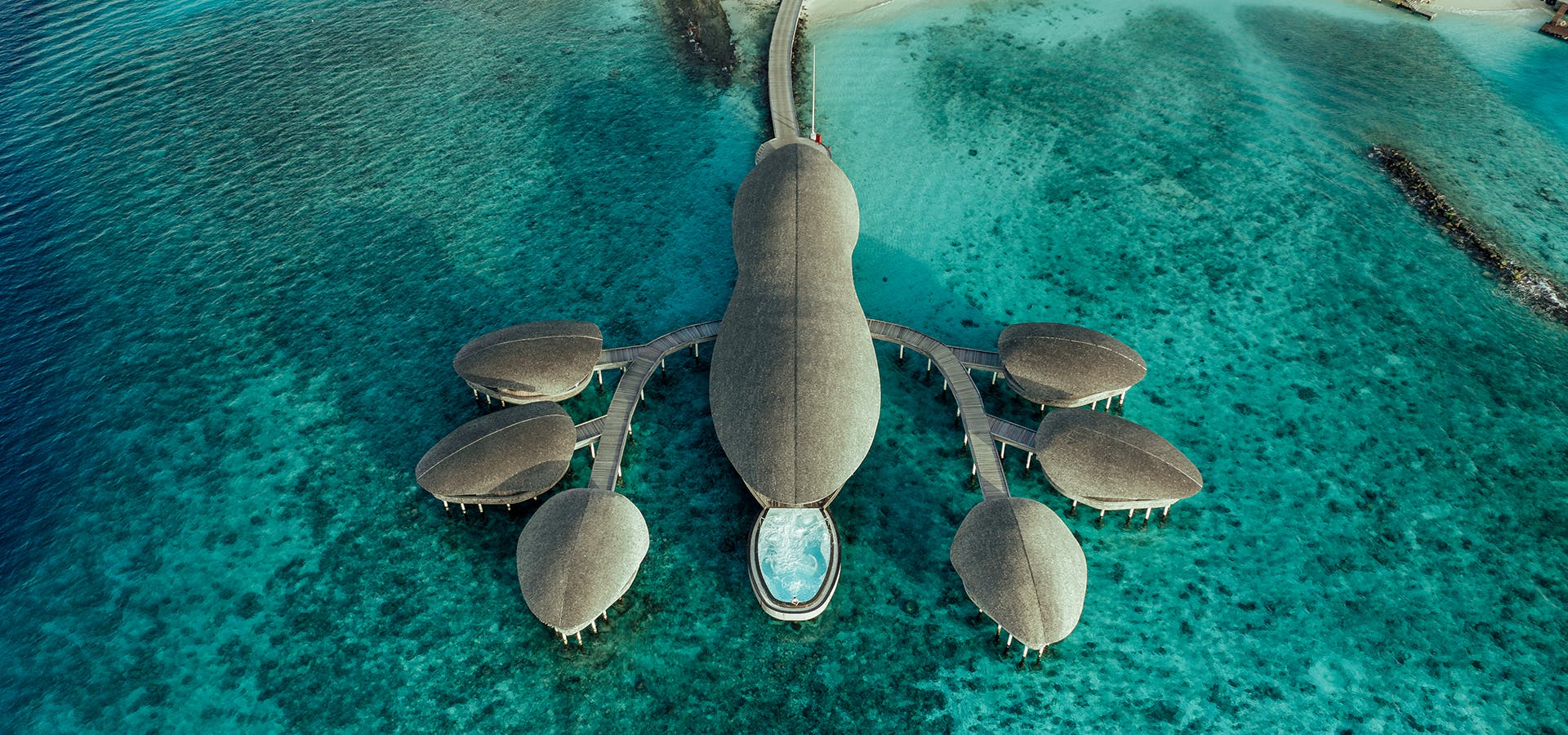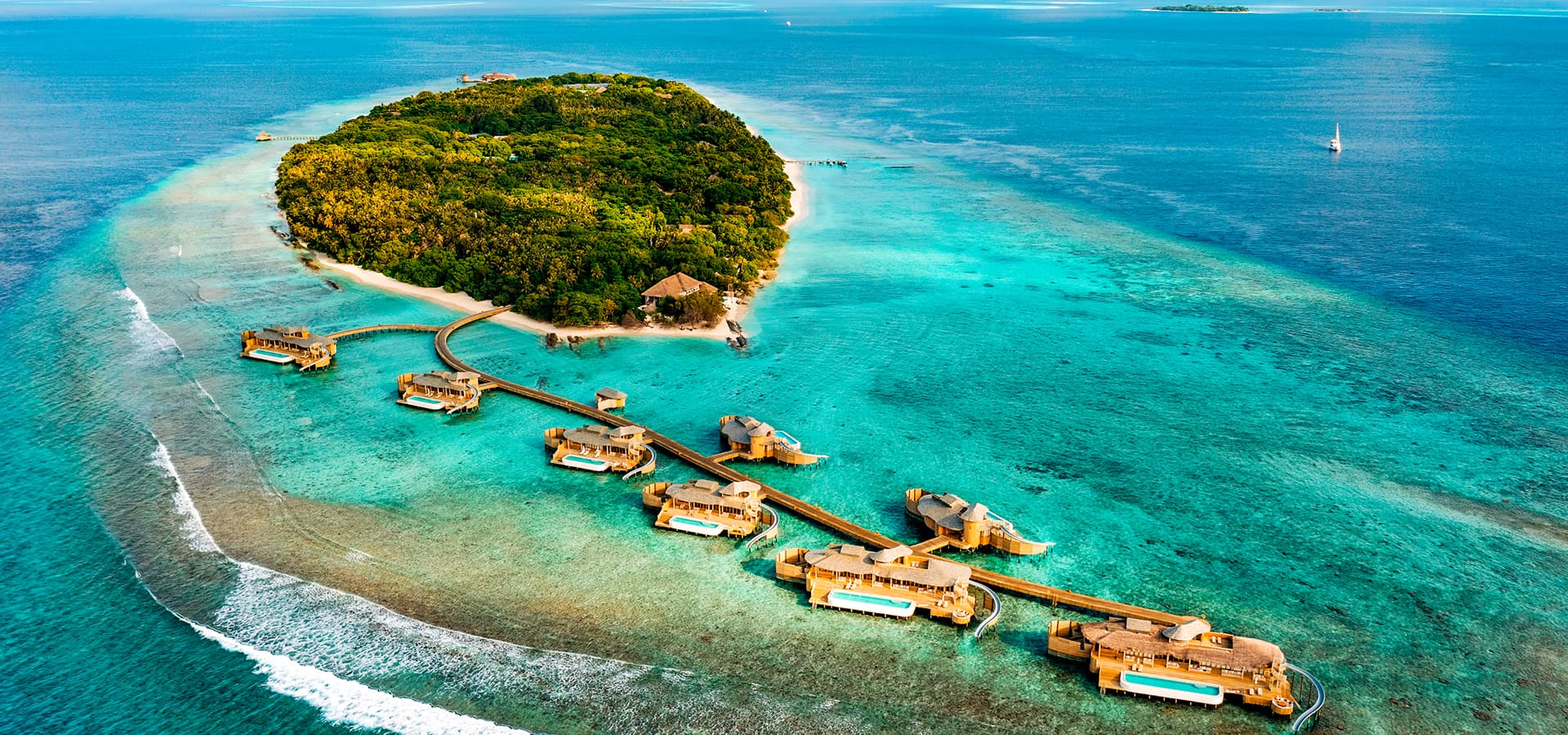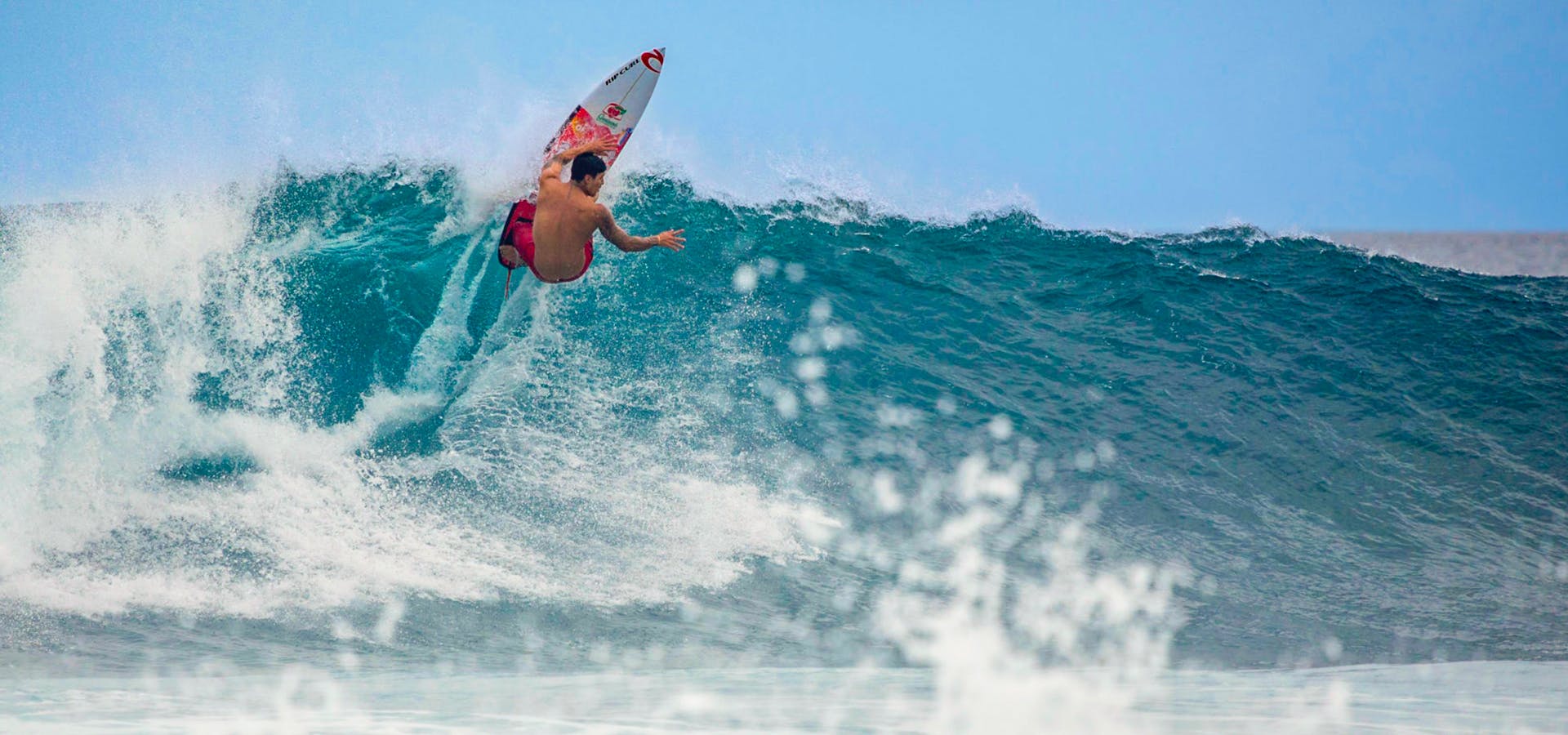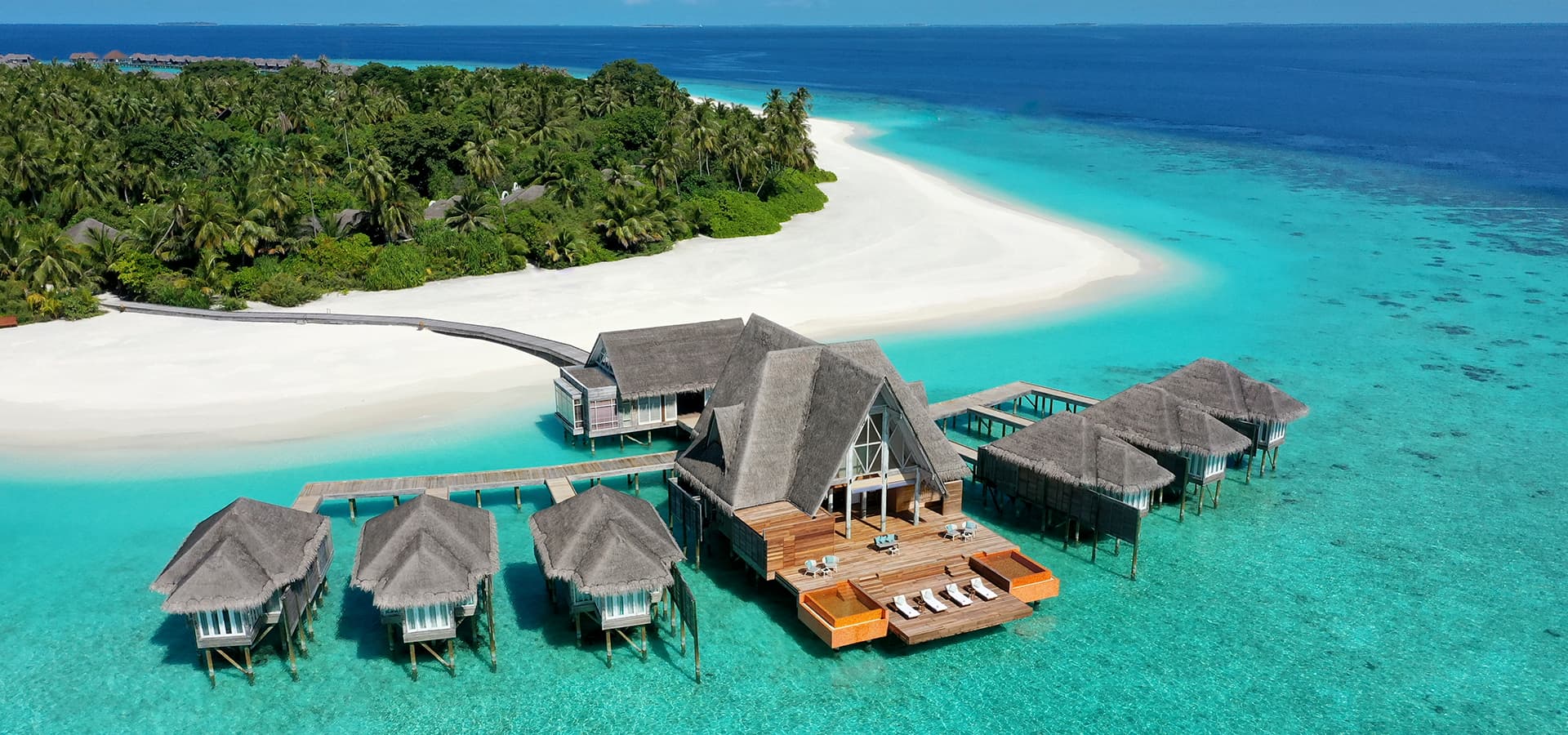Recent studies have shown that travelers are increasingly concerned about the impact their travel is having on the world—and there has been an increased awareness of environmental and social issues, too.
Meet Hazel Araujo, marine biologist at St. Regis Maldives Vommuli Resort, as she discusses why she is passionate about saving our oceans and marine life.
“The interest in creating sustainable solutions for a better ocean is increasing every year worldwide,” said Araujo. “The ocean is intrinsically related to human’s daily life and especially for island nations such as the Maldives, the protection of marine biodiversity and securing the ocean’s health is crucial.”
With the Maldives in mind, the marine biologist discusses what the St. Regis Maldives Vommuli Resort is doing for guests this year, their sustainability initiatives, and how they work to support local communities.

How long have you worked at the resort? What is your background?
I am a Guatemalan aquaculturist with more than eight years of experience in conservation, research, and awareness initiatives in the Mesoamerican Reef. In 2022, I was recognized by the North American Association on Environmental Education as one of the top 30-under-30 environmental educators, having worked with local NGOs to promote ocean literacy to more than 1,000 children and youth in Guatemala. I have been a youth policy advocate and national representative in various climate and ocean international conferences such as COP27, UN Ocean Conference, COY17, and RCOY Latin America.
Now, I have been working as the resident marine biologist at the St. Regis. For more than five months, I have had the pleasure of coordinating the Reefscapers coral restoration project at this resort.
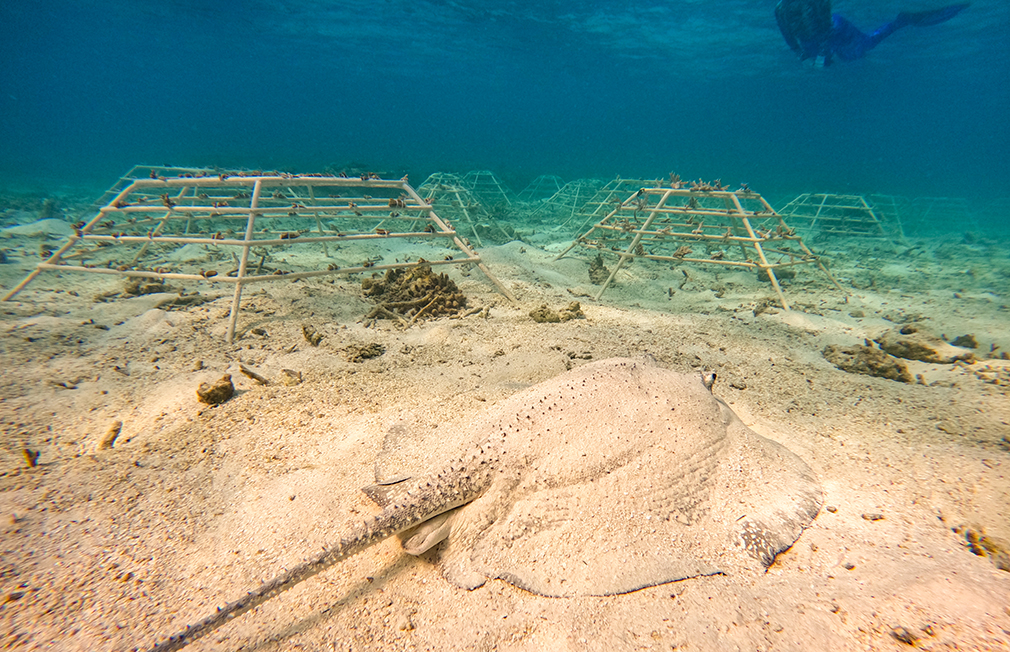
What is involved in a typical day for you working at the resort?
Starting early already in the water, I do a morning visit to our coral restoration sites for maintenance. This involves checking the coral fragments growth, removing unwanted organisms, and doing a brief assessment of the large marine life such as sharks, stingrays, sea turtles, etc. After this, I check on the surrounding house reef and check for fragments of corals that are usually broken from the strong currents, or I collect the fragments myself from large healthy colonies.
Then, I may join the resort’s snorkel excursions to meet guests and enrich their experience with marine biology information, as well as share the initiatives that we do to promote ocean conservation.
When the guests want to take part in the coral adoption, I make a coral frame activity with them, which consists of attaching coral fragments to a frame structure while having a lively conversation about coral restoration. Once this is done, I go drop off the coral frame to the restoration site and take the first photo for the biannual update each sponsor gets.
Finally, I would join the Kids Club at the resort to give a class to the children on subjects like sharks, turtles, and corals; I also host evening talks for adults at the library.
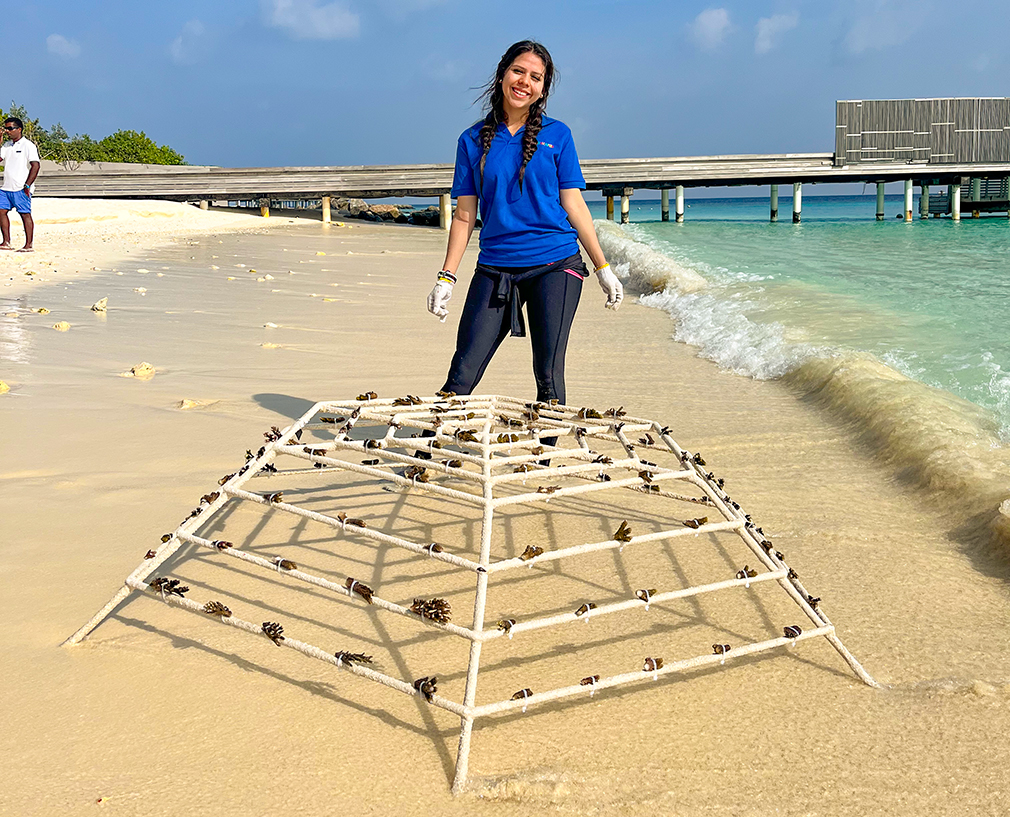
Tell us more about the coral restoration program.
I am excited to be part of The St. Regis Maldives coral restoration program that started this year. It is a great initiative that contributes to the goal of conservation for the future. Every day I can see how our coral fragments are growing and improving the health in our surrounding reef. Although it takes time, with consistent efforts we are aiming to see in the next few years a bigger and more resilient reef site that is both beneficial for marine biodiversity and creates a beautiful site for everyone that comes to visit. In some way, I believe we really follow the saying “Make every day World Ocean Day.”
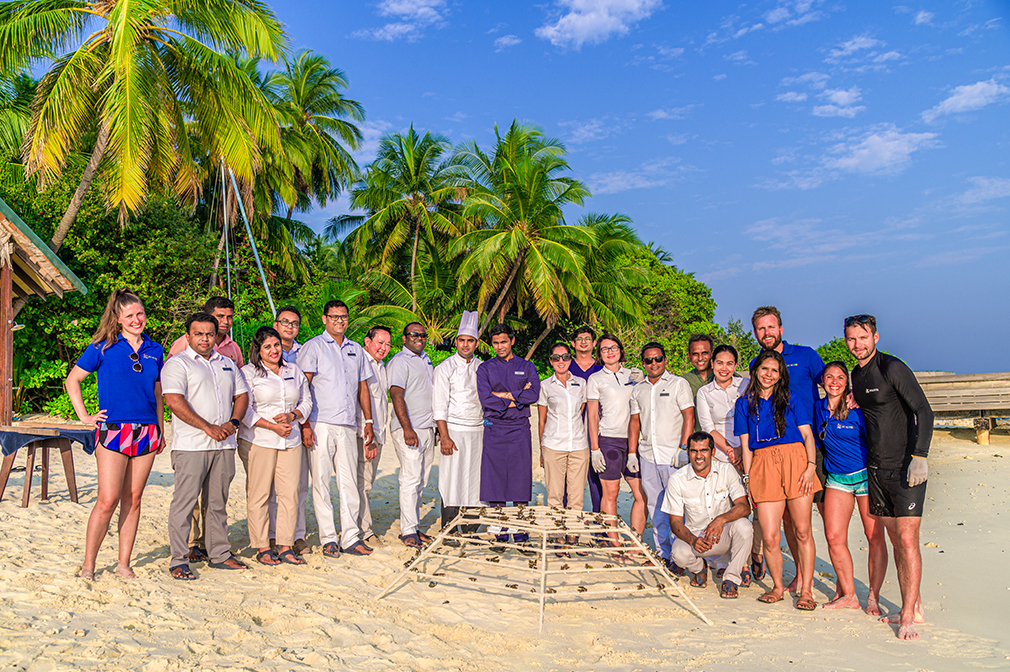
You and your team lead guests on several onsite conservation initiatives. What is the purpose of them?
The main goal is simple: to create strong and healthy corals for the future of the Maldives. The coral propagation efforts bring many benefits, such as restoring affected areas, securing resilient coral reefs that can better withstand the world’s environmental threats like climate change and pollution while increasing marine biodiversity and promoting sustainable tourism. In addition, the conservation initiatives include scientific research that helps us understand the impact of the efforts and the status of all biodiversity that is connected to the corals, plus education to share awareness of the importance of supporting these projects.
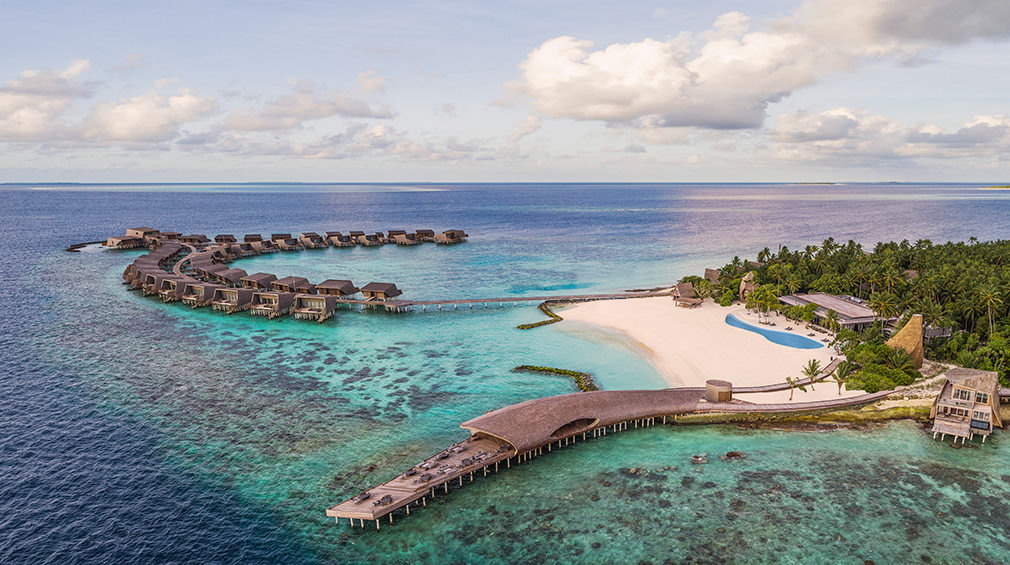
What kind of cleanup projects is the resort involved in? And how often are they carried out? What sort of waste and damage have you encountered?
As part of our staff activities at the resort, we do monthly beach and underwater reef cleanups. It is a great opportunity to share time as a team in the beautiful nature of the Maldives while helping tackle one of our biggest worldwide issues, marine pollution. Although beach cleanups are done routinely at the resort, I notice there is still some amount of marine debris present, especially single-use plastics. It is shocking to see how even though we are secluded on a small island in the vast Indian Ocean, we are still affected by the plastic pollution that travels through the ocean currents and ends up here. Our cleanup activities help us realize the importance of changing our daily habits to reduce waste while reminding us to not pollute the beach and ocean.
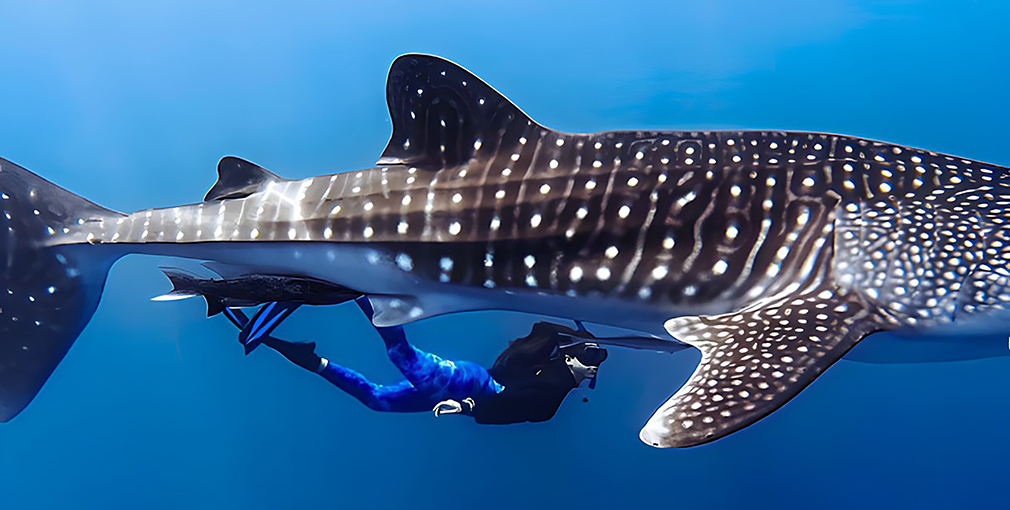
What marine life is local there? What measures are taken to protect this marine life?
The marine biodiversity in the Maldives is our main attraction: pristine turquoise waters with lots of reef fish, sharks, dolphins, sea turtles, and colorful corals. As I must do daily maintenance visits to our coral propagation site, I have the opportunity to see this beautiful marine life—the “locals of the island.” Something important to highlight is that in order to have amazing animals like the sharks and sea turtles, their home—the corals—must be healthy. Thus, in The St. Regis Maldives the marine life care centers in the conservation corals. Another important initiative is bringing awareness to the guests for care during marine life encounters, such as not touching, stepping, grabbing, or feeding them.
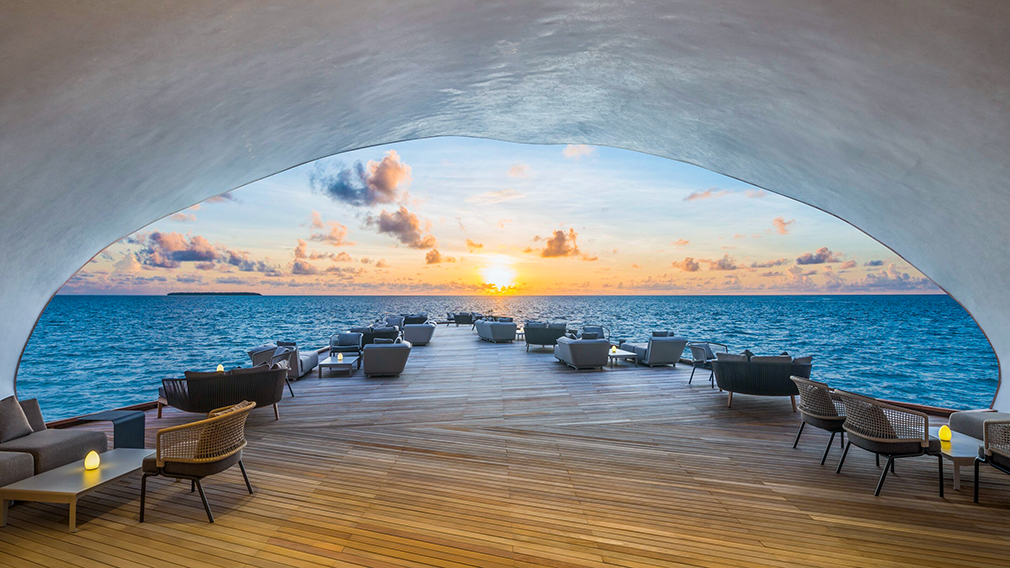
What would you say is the single most damaging threat to the oceans?
There are so many, it is hard to choose a single threat. Think about how our planet is made up of more than 70 percent ocean. All our worldwide issues affect the ocean. But as a young ocean advocate, the biggest threat I see is the lack of knowledge and interest for ocean conservation. How can we tackle these big problems if there are so few of us that are working for it? It is crucial to increase education and awareness efforts for all the people in the world to encourage them to be involved. It does not matter where you are on the planet; the health of the ocean affects all of us.
“In the end, we will conserve only what we love; we will love only what we understand and we will understand only what we are taught.”- Baba Dioum
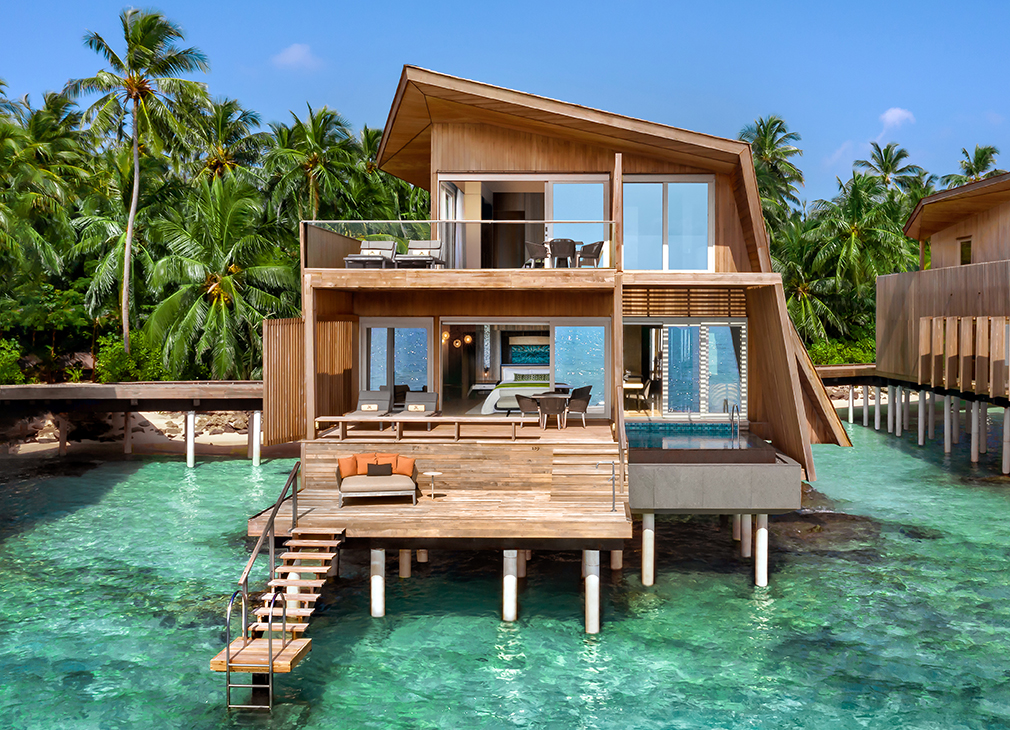
What changes have you seen over the past five years?
Coral loss is still in a worrying status; it is expected that by 2050 75 percent of all coral reefs will face critical threat levels. Although the future scenarios for coral reefs have shown us an imminent loss of marine biodiversity, we must never lose hope. We are working every day to change those scenarios, here at Reefscapers and many researchers all over the world. The best part is that not only scientists working directly with corals are helping—anyone can be part of the change. Sustainable alternatives, carbon footprint reduction, and other initiatives have brought a positive change for protecting this beautiful ecosystem.
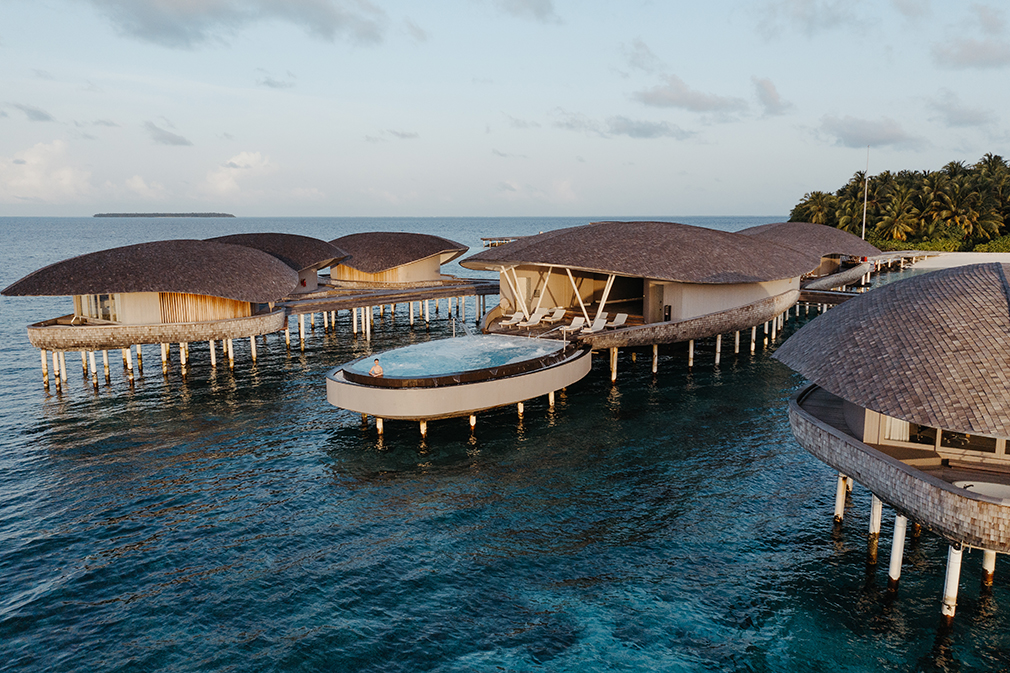
Why are the oceans so imporant? Can the oceans recover?
The ocean and our world’s climate are intrinsically related, and that is our best tool to tackle climate change. The ocean regulates temperature, rainfall, droughts, and floods. As the largest store of carbon on the planet, the ocean is our biggest ally for climate change mitigation. But there is a limit to the power of the ocean. As humans continue to increase gas emissions and accelerate climate change, the ocean, and the life in it is suffering the consequences. The sea level is rising, the ocean is becoming more acidic, and the equivalent of a garbage truck is dumped in the ocean every minute. Thirty to fify percent of the world’s marine habitats have been lost, such as coral reefs. It is expected that by 2050 more than 75 percent of coral reefs will face critical threat levels. That is: if we do not do anything about it.
Coral reefs can be saved, but we need to do it now. As the global environmental threats increase, the actions for protecting and restoring such vulnerable ecosystems like coral reefs needs to become a priority. Coral restoration programs such as the work we do at Reefscapers has shown to be effective to increase the population of resilient corals and bring hope to islands in the Maldives.
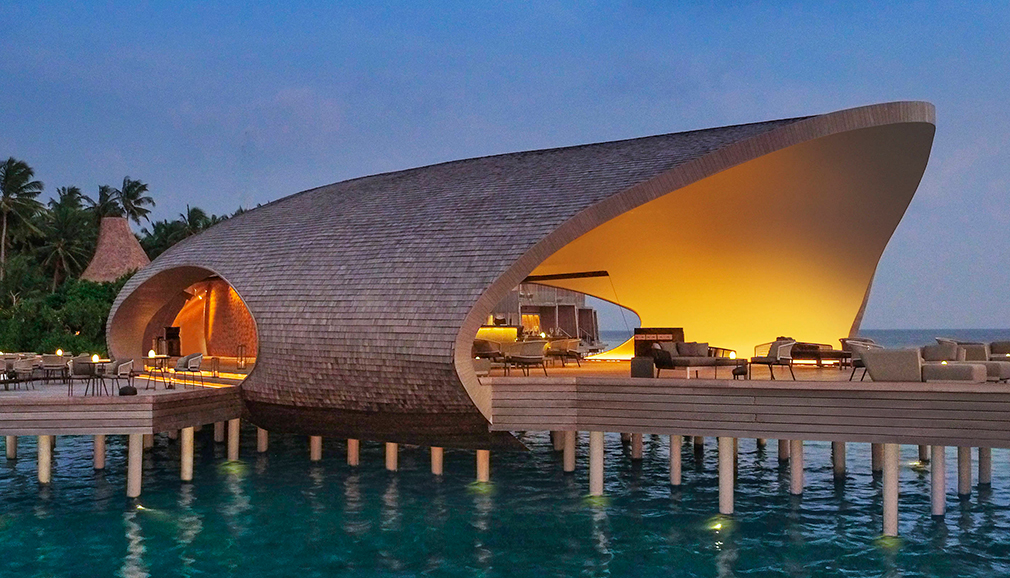
What are you researching now?
I am currently working on monitoring the coral spawning patterns in our island. This is the reproduction cycle of corals, where they synchronise to spawn at the same time in a spectacular event that occurs around the full moon. We are lacking information of the patterns and species in this area, so my focus is to better understand how corals are effectively and naturally reproducing here and how we can help improve it.



